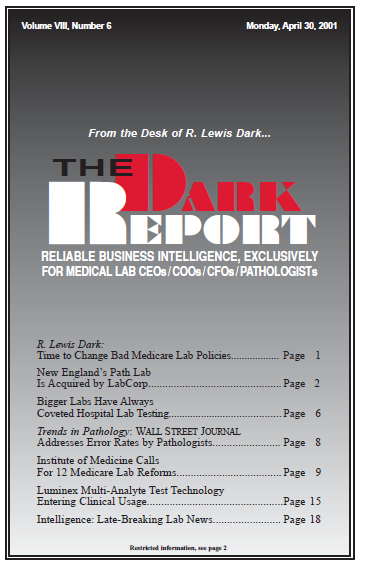CEO SUMMARY: For almost two decades, the nation’s largest laboratory companies have, for all intents and purposes, been “locked out” of the market of hospital inpatient lab testing. Executives at commercial labs have long viewed hospital inpatient lab testing as an untapped market. PathLab was successful at operating collaborative lab ventures with hospitals and LabCorp …
Bigger Labs Have Always Coveted Hospital Testing Read More »
To access this post, you must purchase The Dark Report.


